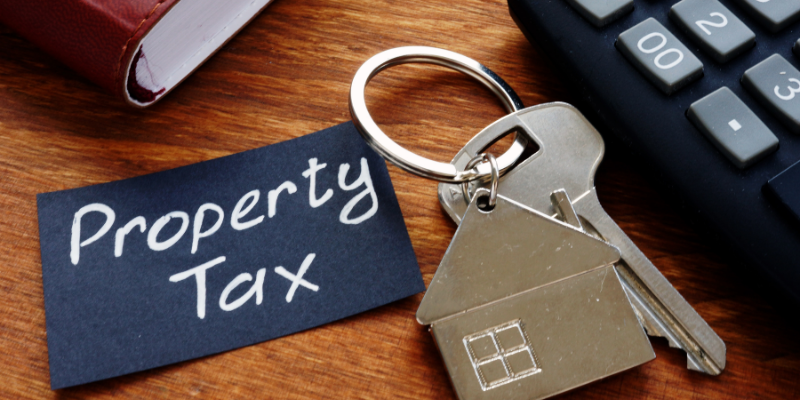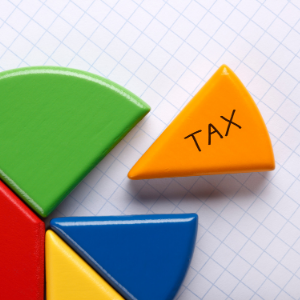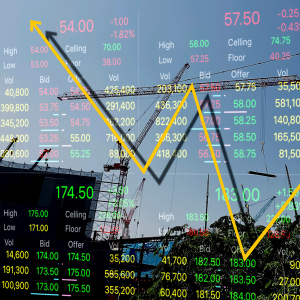
Understanding the Vancouver, WA property tax rate is crucial for homeowners and potential buyers aiming to navigate the 2025 fiscal landscape effectively. This comprehensive guide explores the intricacies of property taxes, equipping you with the knowledge to make informed financial decisions. Whether you’re assessing the implications for your budget or planning for upcoming expenses, grasping the components and calculations of property taxes can significantly impact your investment strategy. Join us as we explore the determinants of Vancouver’s property tax rates and what to expect in the coming year.
Key Highlights
- Vancouver, WA’s 2025 property taxes impact public services and reflect historical and economic trends.
- The adequate property tax rate funds essential services, such as schools, public safety, and infrastructure.
- Economic factors, state legislation, and demographic shifts in the county influence tax rates.
- Property assessments by Clark County form the basis for calculating individual tax liabilities.
- Staying informed on tax policies and legislative changes aids in strategic financial planning.
Overview of Vancouver, WA, Property Tax System
Understanding the property tax system in Vancouver, WA, involves recognizing its significant impact on both homeowners and the wider community. The property tax rate is influenced by several factors, including historical changes in levy rates and the effective property tax rate, which in turn affect public services. As a taxing district, Clark County’s assessment and distribution of property taxes are crucial for maintaining local infrastructure. Tax rates in Vancouver have evolved in response to economic trends and changing civic needs. This exploration will uncover the historical context of tax rates and their impact on local services and amenities.
Historical Context and Evolution of Property Tax Rates in Vancouver, WA

The history of the property tax system in Vancouver, WA, is closely tied to the city’s economic expansion and demographic transformation. Since the approach to tax rates is philosophically contrary to the balance of the municipal community and its financial well-being, it is worthwhile to trace the history of these policies.
The property tax system in Clark County is designed to provide an equitable and just framework, which has been in existence for many decades. Its rationale is to distribute the tax burden to property owners in a more rational manner. During the county’s initial years, the most attention was given to providing the most basic services, which included infrastructure, education, and public safety. There was a slow but steady transition of Vancouver from a small town to an urban center, which meant that the levy rates had to be and were increasingly modified to meet the city’s economic needs.
In the long run, the appraisal of certain intervals of time when the population was increasing and property values were on the rise significantly influenced the way levy rates were set. Many times when the county had to balance the property tax rates, it had to increase the county tax rates. In the opposite scenario, during a period described as an economic decline, Clark County had to balance property revenues with the basic public services that needed to be rendered.
The Clark County Assessor’s Office has been integral in these adjustments, periodically reassessing properties to align tax responsibilities with market realities. The county’s reassessment efforts, aimed at ensuring accuracy and transparency in market value for these properties, speak for themselves.
State-level laws on property tax applications have also shaped the Vancouver area. All the while, Washington State has been giving legislative measures to cap levy increases in an effort to control the tax burden on homeowners. These provisions have proven effective in enabling local authorities to fund schools, infrastructure, and safety protection services without imposing excessive tax burdens.
The local legislative changes typically resulted in the recalibration of rate schedules concerning taxation divisions, including Vancouver, as a measure to achieve compliance with the state’s broad taxation framework. The balance between local self-governing and state supervision has enabled residents to enjoy a stable and predictable tax regime.
Economic development within the region has profoundly impacted the property tax system. An increase in neighborhoods, accompanied by the flourishing of commercial zones, led the county to positively revise its tax system on fuel to serve its residents. These changes highlight the impact of economic activities on property taxation within the Vancouver region.
Vancouver’s property tax rates have consistently sought to strike a balance between community growth and development while maintaining financially responsible policies. Each change has, and will continue to, mirror the county’s commitment to fair, economically justified taxation. This trajectory also enables investors, homeowners, and policymakers to understand how history continues to shape property taxes in the present and how the decisions made will continue to influence the future landscape of property taxation in Vancouver.
How Property Taxes Impact Local Services and Amenities in Vancouver, WA
The revenue from property taxes in Vancouver, WA, forms the core of the city’s financial structure, as it directly sustains the local services and facilities that constitute the daily reality for citizens. The revenue from taxes ensures that the public in the Clark County area and contiguous regions enjoys a decent standard of living by equipping schools, improving safety departments, enhancing parks, and promoting public services.
The public education system is one of the key beneficiaries of Vancouver’s property tax revenue. The local schools that receive grants funded by Vancouver’s property tax revenue assist in the construction of the school, improve the facilities, and program the school’s operational activities in a way that promotes student growth. Property taxes help fund the hiring of skilled and professional teachers, as well as subsidize their salaries, thereby ensuring that the educational system in Clark County is robust enough to meet the community’s needs.
The property taxes in Vancouver help fund the deployment of public safety facilities throughout the city. The funds that the city collects in the form of taxes support the fire departments, police, and emergency staff in their day-to-day activities, including the payment of salaries and the purchase of operational equipment. The personnel in the area of public safety are aided by well-equipped public safety technology, thus permitting a rapid response to emergencies. The personnel are well-trained and ready to respond to any situation, ensuring a great deal of safety and security for the public.
In addition to basic services, parks, libraries, and community centers in Vancouver enjoy funding derived from property taxation. These community resources provide recreation and cultural enrichment, serving as venues where residents can socialize. The community centers and parks enable families and individuals to come together in safe and lively environments, which are funded in part by property taxes.
Continuing to grow, Vancouver invests property taxes in critical infrastructure, including public transit, roads, bridges, and more. These investments are crucial for population growth, urban mobility, and the future of city economic development. Well-paid infrastructure also benefits new residents and businesses, which solidifies Vancouver as a prime city in Washington.
The link between the taxation of property and the local services provided highlights the concern for the assessment and accountability of the use of taxes levied, which often goes untaxed and is subject to minimal scrutiny. Excessive burdens on taxpayers must be avoided while ensuring that community services receive the property grants they warrant.
Having access to the information on how funding expenditures are made enables residents to actively participate in civic discourses and defend the need for policies that advance growth and development within Clark County.
- Funding allocation for public education improvements and facilities maintenance
- Support for competitive salaries in the local education sector
- Contribution to maintaining police, fire, and emergency services standards
- Financial backing for recreational and cultural development projects
- Ensuring infrastructure advancements, including roads and public transport systems
- Resources directed towards maintaining community parks and libraries
- Impact on urban development and neighborhood revitalization efforts
Current Property Tax Rates in Vancouver, WA for 2025
The property tax rate for 2025 in Vancouver, WA, is a composite of historical trends and contemporary financial policies. The frameworks established by the county and the modifications to the levees in question dictate the county’s approach. These rates, stemming from diverse socioeconomic conditions, are instrumental in deciding revenue funding for local expenditure. This necessitates further exploration. Consideration of the factors that influence changes in the property tax landscape and an inter-city comparison of property tax rates in the state of Washington serve the dual purpose of promoting reasoned equity and preserving the integrity of local tax policies.
Factors Influencing Property Tax Changes in Vancouver, WA

Understanding the factors that influence property tax changes in Vancouver, WA, is essential for homeowners and investors looking to anticipate future financial obligations. In 2025, these tax rates are shaped by a combination of economic conditions, legislative updates, and population growth, all of which significantly influence the amount residents pay each year.
The levy is one of the most significant factors in determining property tax rates. It represents the total revenue required to fund essential local services—including schools, infrastructure, and public safety. Each year, Clark County reviews the levy and adjusts it based on median property values and community needs. As property values rise or fall, the levy is recalibrated to strike a balance between generating adequate funding and maintaining affordability for homeowners. This ensures that property taxes evolve in step with the county’s economic landscape.
At the heart of Vancouver’s tax structure is the Clark County Assessor’s Office, responsible for determining the assessed value of each property. This process takes into account recent home sales, market trends, and property improvements, including renovations and additions. Because assessed values directly affect tax rates, any increase in property value—whether due to market appreciation or home upgrades—can result in higher tax bills. Regular assessments help maintain fairness and accuracy across the county.
New projects and investments in residential and commercial properties, as well as the construction of new roads and other infrastructure in Vancouver, lead to changes in urban development and growth. These changes increase the demand for various public amenities and services, such as education and roads. A deficit in sufficient funding, resulting from lower tax rates compared to those of other cities in Washington state, may force Clark County to increase levy rates.
Washington state property tax legislation is reviewed and updated periodically to ensure fairness and fiscal responsibility. Such deflationary policies can include annual growth caps and new taxation relief propositions for qualifying homeowners. To maintain compliance and consistency with other regions, Clark County adopts these tax mandates.
There is an increase in the Vancouver population, which results in more emergency public services for the community, in turn leading to the development of additional public amenities, such as schools and transportation. Balance and fairness in property taxes are maintained, as these taxes, initiated to support public amenities, are customer-friendly and equitable.
Changes in property tax rates in Vancouver significantly impact the amount of information available to homeowners. These homeowners are more likely to stay informed about new information and changes related to their county and yearly assessments, as well as changes to these assessments.
Comparison with Other Cities in Washington State
When evaluating Vancouver’s property tax rates for 2025, understanding the property tax rates of other major metropolitan areas in Washington State remains essential. These comparisons enable taxpayers to evaluate Vancouver’s property tax rates in relation to other city real estate markets.
Though the city of Vancouver is in Clark County and is subject to the state property taxation system in Washington, it also has its own property tax levy rate system. These unique Vancouver tax rates are tailored to the community’s growth, infrastructure, and other development needs. The Clark County Assessor’s Office, through extensive research and analysis, develops policy objectives that aim to achieve sustainable development goals. Vancouver, in this case, attempts to strike a balance between development needs and the tax revenue that residents must provide for core services.
Unsurprisingly, the most economically significant business center in Seattle, Washington, has a markedly higher property value and property tax levy rate. The value added due to dense urbanization and the growing tech parks has resulted in a higher complexity of the tax structure. Higher tax assessments provide ample public services and infrastructure.
By contrast, Spokane’s property values and overall economic context are much more constrained. Given Eastern Washington’s position in relation to Vancouver, property taxes are lower, which is more than sufficient to support the public facilities and basic services in the wider and underserved area.
That renders Tacoma economically more efficient than its peers in the area, since tax rates and structure are almost identical to those in Vancouver. Both domiciles continue to experience positive net migration, which sustains the need for further investments in school infrastructure and overall transportation infrastructure. Tacoma, more so than Vancouver, tends to prioritize school feedback, which suggests a more community-oriented approach to tax leverage.
Vancouver’s rate of property taxes, despite being the most competitive in the Washington region, is proportional to the expenses incurred in rendering public services to taxpayers. The economic realities and the socio-political behavioral tendencies of the region’s tax structure are uniform, since the basic rules are established centrally as a state guideline.
Homeowners should be aware of the annual property tax updates in Clark County, including rate changes, assessment adjustments, and local levies within the county. From Vancouver, how does the real estate market compare to that of Seattle, Spokane, and Tacoma? Such understanding enables residents to make more informed decisions regarding homeownership, investment, and long-term real estate ownership.
Understanding Your Property Tax Bills
To understand property tax bills in Vancouver, WA, Tax certifications, tax calculations, and tax liabilities all play a role. Tax bills are the result of multivariable functions comprising county assessments, yearly shifts in levy rates, and average real estate prices. Grasping these concepts in combination with your tax liability and county funding allocations makes it apparent why Clark County funding advocacy should be prioritized. Tax liability related to property in Clark County hinges on the ability to engage in policy measurement discussions and the understanding of the advantages offered to society.
Details on Calculating Your Property Tax Liability in Vancouver, WA
Understanding how to calculate your property tax liability in Vancouver, WA, is essential for managing your finances effectively. Each homeowner’s tax bill is based on a combination of their property’s assessed value, the tax rate set by Clark County, and any special levies approved for local services or projects.
The process begins with the Clark County Assessor’s Office determining the value of your property. This valuation considers:
- Recent home sales in your area
- Current real estate market trends
- Property upgrades or renovations
When setting a property tax for your property that comes from the local government, you start with an assessment of that property and multiply it by the local government tax rate. That rate, in turn, is calculated from the properties owned and constitutes a form of tax on the property itself. That tax rate is made in relation to the value of the property and expenses that need to be covered in the form of services. As for tax values and property rates, they typically change annually, driven by economic demand, public preferences, and state-mandated laws.
The amount of money that a county needs to collect for the purpose of servicing the community is called the community services budget. To protect residents of Washington State, a law states that levies should not increase indefinitely. Raw public works that are newly initiated, however, are the only works that may cause an increase in levies.
Having easy access to legislative changes allows for the anticipation of not only the changes themselves but also possible changes that may influence your property taxes every year. New changes have been published, which will assist in evaluating the property for tax purposes, fulfilling your expectations before the payment is due.
Because the assessed valuations and levy rates may differ, each taxpayer pays a different amount. The quickest way to calculate the payment is to plug the figures into a Vancouver property tax calculator. This tool provides a rough estimate, allowing you to allocate funds for budgeting and avoid unnecessary expenses.
If you’re planning to sell your home in Washington for cash or reassess your property’s value, reaching out with Sell With Isaac can help you navigate the process more confidently. Whether you’re evaluating your property’s worth or exploring ways to reduce your tax burden, Sell With Isaac provides trusted guidance for homeowners across Clark County.
Tips for Managing Annual Property Tax Payments in Vancouver, WA
Managing annual property tax payments in Vancouver, WA, requires a proactive approach and creative financial planning. Gaining insight into the workings of Clark County and the property tax system will help property owners avoid undue surprises and plan accordingly throughout the year.
Cash flow for sustenance includes annual property tax payments, which are determined by the levy rates, property value assessments, and local regulations. Keep an eye on the Clark County Assessor’s Office for any changes in the payment periods, net tax assessments, and any rates. Property owners may also have the option of using tax estimators to estimate their tax payments and plan their future budgets.
Rather than paying a large one-offpayment in a year, aim to save the funds for property taxes each month. Tax payments will be made easily, steadily, and self-fulfilling. It is a realistic strategy for budgets and cash flow.
In the case where you suspect that the assessed value of your property might be higher than the current market value, you may have grounds on which you can request a reassessment or even appeal the valuation. Residents of Vancouver, WA, can appeal to Clark County to possibly lessen their tax burden. Analyzing comparable property sales can be instrumental in supporting your argument, which may help achieve equitable taxation.
Be proactive about the tax legislation and new tax laws that come about every year, which may lessen your tax liability. Some tax-exempt benefits are specifically designed for older individuals, people with disabilities, and veterans. However, taking advantage of these opportunities may provide substantial value over the years.
For Vancouver homeowners planning to sell their house fast for cash or adjust their financial strategy, working with local real estate experts like Sell With Isaac can make a big difference. Their team provides professional guidance on selling homes quickly, understanding property valuations, and maximizing profits even amid changing tax conditions. Whether you’re preparing to sell or simply aiming to manage your real estate assets better, Sell With Isaac offers reliable local expertise you can trust.
| Component | Description | Impact on Tax Liability | Management Strategies |
| Assessed Value | The value is determined by the local assessor based on the property’s market value. | A higher assessed value increases the tax liability. | Regularly check assessments and appeal if overvalued. |
| Tax Rate | The rate set by local jurisdictions applied to the assessed value. | Directly influences the total tax bill. | Participate in local meetings to understand and influence rate changes. |
| Exemptions | Reductions in assessed value for eligible properties. | Can significantly lower tax obligations. | Research and apply for applicable exemptions regularly. |
| Special Levies | Additional charges for specific community projects or services. | Increase tax liability temporarily. | Stay informed about local ballot measures. |
This table provides a clear overview of the components involved in calculating and managing property tax liabilities, offering homeowners in Vancouver, WA, actionable insights to handle their tax responsibilities efficiently.
Clark County’s Role in Property Tax Administration
In attempting to understand Clark County’s role in managing property taxes, a complex balance between government obligations and community needs is revealed. Maintaining the property and leasing the county, paying for services, covering local taxes, issuing taxes, and making payments. By balancing the economic trends and legislative changes, Clark County taxes the population and also the level of expectations from the county.” Understanding all of the factors revealed provides clarification on the areas of local tax policies and the obligations necessary to pay taxes.
How Clark County Assesses Property Value

In Clark County, the property assessment process plays a key role in determining the property tax rate in Vancouver, WA. The Clark County Assessor’s Office is responsible for evaluating the value of every property to ensure fair and accurate taxation.
The assessment process begins with a detailed inspection and analysis of each property. Several factors influence the assessed value, including:
- Recent property sales in the Vancouver real estate market
- Current market trends and neighborhood development
- Home improvements such as renovations, additions, or upgrades
These elements help the county determine the fair market value, which serves as the foundation for calculating property taxes.
The assessor’s office employs Geographic Information Systems (GIS) technology and big data analysis, which are vital to sustaining transparency, aid in tracking property alterations, and forecast market patterns. Property assessments are performed periodically to adjust for local economic and fundamental changes in the estate market, ensuring current and equitable tax rates.
Owners of property may protest the assessment as being too high. The assessment appeals process ensures equity in the tax system by allowing property owners to contest the property and request a reassessment. This system of checks and balances helps avoid scenarios where the market shifts temporarily, causing undue tax burdens to the owners.
Homeowners’ mortgage payments depend on the assessed property value as reflected in the bank statement. Mortgage payments contribute to the community, which sustains and enhances essential services such as infrastructure, education, and safety. Property owners who understand tax assessments will be able to manage tax obligations through effective budget planning.
Frequently Asked Questions
What are the economic factors affecting Vancouver, Washington, property taxes set for 2025 and beyond?
In Washington State, property taxes allocated to the city of Vancouver are to some extent determined by state and local economic conditions, as well as broader state demographic changes. Property levies to the city of Vancouver, which represent the city’s share of local property taxes, are controlled by the state as an estimate of the local services required, adjusted periodically to reflect the City of Vancouver’s changing property values and Washington State legal updates regarding what’s permissible.
In what ways do Vancouver property taxes intersect with the city’s public services?
In the case of Vancouver, Washington, property taxes are one of the primary sources of budgetary public revenue within the city’s budget, as well as locally levied public property taxes for essential services, notably for education, public order, and maintaining public works and civic facilities. The adopted local basic property tax ensures that local education services and facilities, as well as the city’s fire department and parks, are maintained in a manner that allows the city to sustain its preeminence within international civic standards.
What does property tax customization mean for an average homeowner?
Understanding the process of property tax calculations is essential for homeowners, as it helps inform their budget and revenue expenditure. Without such information, it is impossible to determine the assessed value of a property should the rate of property tax for a service be overanalyzed.
How does Clark County do its property value estimations?
To a Clark County homeowner, property tax estimations are calculated using the rest of the local sale data, the zoning map for each district, and twenty-five neighborhood-specific characteristics, as well as the market value of property improvements, inclusive of property boundaries.
In what ways do state laws affect property tax rates in Vancouver?
State laws set maximum property tax rates and dictate the maximum annual tax increase, ensuring local policies align with state-level policies. Such regulation keeps the taxation moderated while providing the required funding for local governance and services.
Helpful Vancouver Blog Articles
- Sell Your Vancouver, WA, Home With Code Violations
- Tenant Damage To Property In Vancouver, WA
- How To Sell My House To A Developer In Vancouver, WA
- How To Sell A House With Termites In Vancouver, WA
- Capital Gains Tax After Selling A House In Vancouver, WA
- Selling A House With Title Issues In Vancouver, WA
- Squatters’ Rights In Vancouver, WA
- Sell Your House In Vancouver, WA, Using A Quitclaim Deed
- Who Is Paying Taxes When Selling A Home In Vancouver, WA
- Selling A Water-damaged House In Vancouver, WA
- Selling Your Inherited House In Vancouver, WA
- Selling A House With Asbestos In Vancouver, WA
- Home Equity For Selling Your House In Vancouver, WA
- Tips For Downsizing Your Home In Vancouver, WA
- Vancouver, WA Neighborhood Map
- Vancouver, WA Property Managers
- Understanding Vancouver, WA Property Tax Rate

